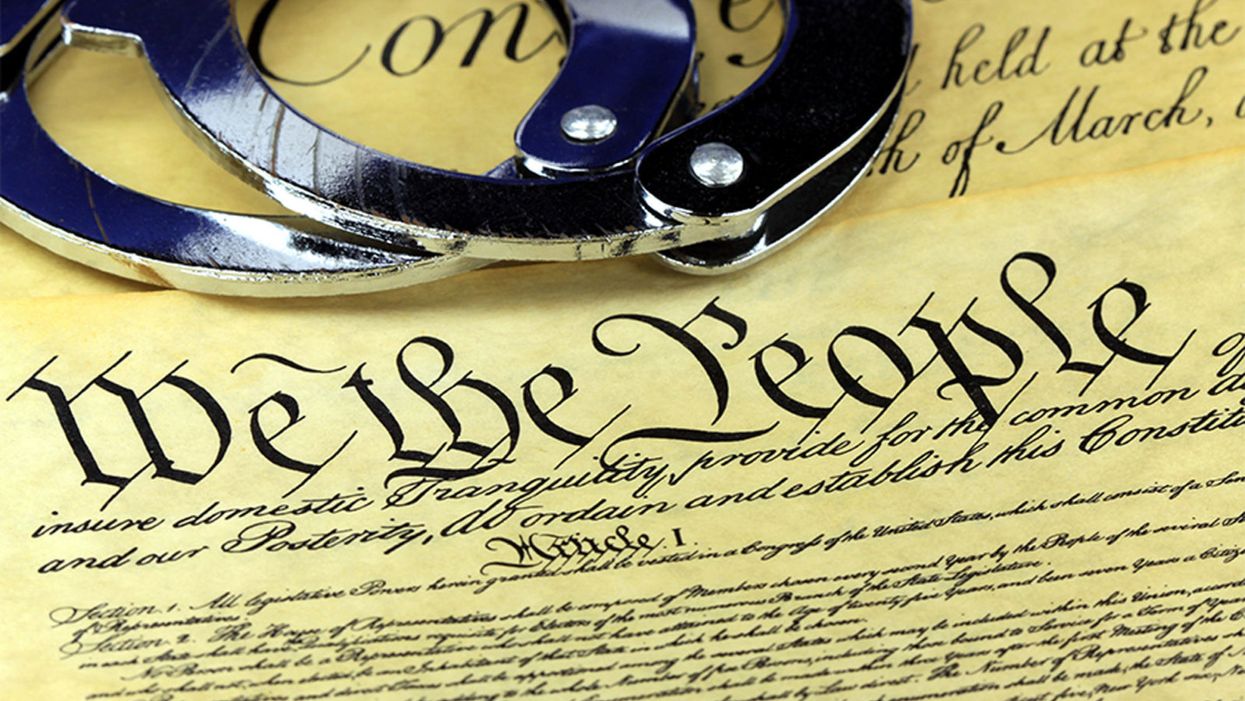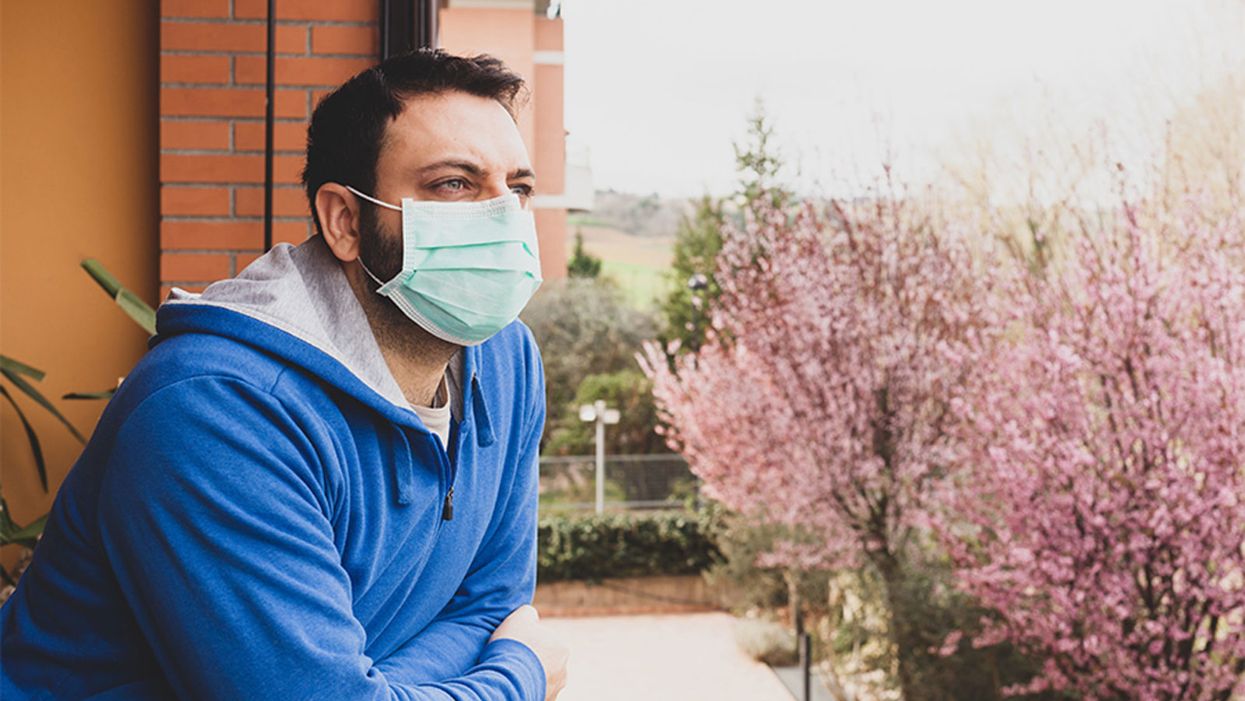This Special Music Helped Preemie Babies’ Brains Develop

Listening to music helped preterm babies' brains develop, according to the results of a new Swiss study.
Move over, Baby Einstein: New research from Switzerland shows that listening to soothing music in the first weeks of life helps encourage brain development in preterm babies.
For the study, the scientists recruited a harpist and a new-age musician to compose three pieces of music.
The Lowdown
Children who are born prematurely, between 24 and 32 weeks of pregnancy, are far more likely to survive today than they used to be—but because their brains are less developed at birth, they're still at high risk for learning difficulties and emotional disorders later in life.
Researchers in Geneva thought that the unfamiliar and stressful noises in neonatal intensive care units might be partially responsible. After all, a hospital ward filled with alarms, other infants crying, and adults bustling in and out is far more disruptive than the quiet in-utero environment the babies are used to. They decided to test whether listening to pleasant music could have a positive, counterbalancing effect on the babies' brain development.
Led by Dr. Petra Hüppi at the University of Geneva, the scientists recruited Swiss harpist and new-age musician Andreas Vollenweider (who has collaborated with the likes of Carly Simon, Bryan Adams, and Bobby McFerrin). Vollenweider developed three pieces of music specifically for the NICU babies, which were played for them five times per week. Each track was used for specific purposes: To help the baby wake up; to stimulate a baby who was already awake; and to help the baby fall back asleep.
When they reached an age equivalent to a full-term baby, the infants underwent an MRI. The researchers focused on connections within the salience network, which determines how relevant information is, and then processes and acts on it—crucial components of healthy social behavior and emotional regulation. The neural networks of preemies who had listened to Vollenweider's pieces were stronger than preterm babies who had not received the intervention, and were instead much more similar to full-term babies.
Next Up
The first infants in the study are now 6 years old—the age when cognitive problems usually become diagnosable. Researchers plan to follow up with more cognitive and socio-emotional assessments, to determine whether the effects of the music intervention have lasted.
The first infants in the study are now 6 years old—the age when cognitive problems usually become diagnosable.
The scientists note in their paper that, while they saw strong results in the babies' primary auditory cortex and thalamus connections—suggesting that they had developed an ability to recognize and respond to familiar music—there was less reaction in the regions responsible for socioemotional processing. They hypothesize that more time spent listening to music during a NICU stay could improve those connections as well; but another study would be needed to know for sure.
Open Questions
Because this initial study had a fairly small sample size (only 20 preterm infants underwent the musical intervention, with another 19 studied as a control group), and they all listened to the same music for the same amount of time, it's still undetermined whether variations in the type and frequency of music would make a difference. Are Vollenweider's harps, bells, and punji the runaway favorite, or would other styles of music help, too? (Would "Baby Shark" help … or hurt?) There's also a chance that other types of repetitive sounds, like parents speaking or singing to their children, might have similar effects.
But the biggest question is still the one that the scientists plan to tackle next: Whether the intervention lasts as the children grow up. If it does, that's great news for any family with a preemie — and for the baby-sized headphone industry.
Defenders of civil liberties fear that the erosion of privacy will become a long-term consequence of the pandemic.
As countries around the world combat the coronavirus outbreak, governments that already operated sophisticated surveillance programs are ramping up the tracking of their citizens.
"The potential for invasions of privacy, abuse, and stigmatization is enormous."
Countries like China, South Korea, Israel, Singapore and others are closely monitoring citizens to track the spread of the virus and prevent further infections, and policymakers in the United States have proposed similar steps. These shifts in policy have civil liberties defenders alarmed, as history has shown increases in surveillance tend to stick around after an emergency is over.
In China, where the virus originated and surveillance is already ubiquitous, the government has taken measures like having people scan a QR code and answer questions about their health and travel history to enter their apartment building. The country has also increased the tracking of cell phones, encouraged citizens to report people who appear to be sick, utilized surveillance drones, and developed facial recognition that can identify someone even if they're wearing a mask.
In Israel, the government has begun tracking people's cell phones without a court order under a program that was initially meant to counter terrorism. Singapore has also been closely tracking people's movements using cell phone data. In South Korea, the government has been monitoring citizens' credit card and cell phone data and has heavily utilized facial recognition to combat the spread of the coronavirus.
Here at home, the United States government and state governments have been using cell phone data to determine where people are congregating. White House senior adviser Jared Kushner's task force to combat the coronavirus outbreak has proposed using cell phone data to track coronavirus patients. Cities around the nation are also using surveillance drones to maintain social distancing orders. Companies like Apple and Google that work closely with the federal government are currently developing systems to track Americans' cell phones.
All of this might sound acceptable if you're worried about containing the outbreak and getting back to normal life, but as we saw when the Patriot Act was passed in 2001 in the wake of the 9/11 terrorist attacks, expansions of the surveillance state can persist long after the emergency that seemed to justify them.
Jay Stanley, senior policy analyst with the ACLU Speech, Privacy, and Technology Project, says that this public health emergency requires bold action, but he worries that actions may be taken that will infringe on our privacy rights.
"This is an extraordinary crisis that justifies things that would not be justified in ordinary times, but we, of course, worry that any such things would be made permanent," Stanley says.
Stanley notes that the 9/11 situation was different from this current situation because we still face the threat of terrorism today, and we always will. The Patriot Act was a response to that threat, even if it was an extreme response. With this pandemic, it's quite possible we won't face something like this again for some time.
"We know that for the last seven or eight decades, we haven't seen a microbe this dangerous become a pandemic, and it's reasonable to expect it's not going to be happening for a while afterward," Stanley says. "We do know that when a vaccine is produced and is produced widely enough, the COVID crisis will be over. This does, unlike 9/11, have a definitive ending."
The ACLU released a white paper last week outlining the problems with using location data from cell phones and how policymakers should proceed when they discuss the usage of surveillance to combat the outbreak.
"Location data contains an enormously invasive and personal set of information about each of us, with the potential to reveal such things as people's social, sexual, religious, and political associations," they wrote. "The potential for invasions of privacy, abuse, and stigmatization is enormous. Any uses of such data should be temporary, restricted to public health agencies and purposes, and should make the greatest possible use of available techniques that allow for privacy and anonymity to be protected, even as the data is used."
"The first thing you need to combat pervasive surveillance is to know that it's occurring."
Sara Collins, policy counsel at the digital rights organization Public Knowledge, says that one of the problems with the current administration is that there's not much transparency, so she worries surveillance could be increased without the public realizing it.
"You'll often see the White House come out with something—that they're going to take this action or an agency just says they're going to take this action—and there's no congressional authorization," Collins says. "There's no regulation. There's nothing there for the public discourse."
Collins says it's almost impossible to protect against infringements on people's privacy rights if you don't actually know what kind of surveillance is being done and at what scale.
"I think that's very concerning when there's no accountability and no way to understand what's actually happening," Collins says. "The first thing you need to combat pervasive surveillance is to know that it's occurring."
We should also be worried about corporate surveillance, Collins says, because the tech companies that keep track of our data work closely with the government and do not have a good track record when it comes to protecting people's privacy. She suspects these companies could use the coronavirus outbreak to defend the kind of data collection they've been engaging in for years.
Collins stresses that any increase in surveillance should be transparent and short-lived, and that there should be a limit on how long people's data can be kept. Otherwise, she says, we're risking an indefinite infringement on privacy rights. Her organization will be keeping tabs as the crisis progresses.
It's not that we shouldn't avail ourselves of modern technology to fight the pandemic. Indeed, once lockdown restrictions are gradually lifted, public health officials must increase their ability to isolate new cases and trace, test, and quarantine contacts.
But tracking the entire populace "Big Brother"-style is not the ideal way out of the crisis. Last week, for instance, a group of policy experts -- including former FDA Commissioner Scott Gottlieb -- published recommendations for how to achieve containment. They emphasized the need for widespread diagnostic and serologic testing as well as rapid case-based interventions, among other measures -- and they, too, were wary of pervasive measures to follow citizens.
The group wrote: "Improved capacity [for timely contact tracing] will be most effective if coordinated with health care providers, health systems, and health plans and supported by timely electronic data sharing. Cell phone-based apps recording proximity events between individuals are unlikely to have adequate discriminating ability or adoption to achieve public health utility, while introducing serious privacy, security, and logistical concerns."
The bottom line: Any broad increases in surveillance should be carefully considered before we go along with them out of fear. The Founders knew that privacy is integral to freedom; that's why they wrote the Fourth Amendment to protect it, and that right shouldn't be thrown away because we're in an emergency. Once you lose a right, you don't tend to get it back.
Scientific breakthroughs offer our only solution for a safe return to normal life.
Kira Peikoff was the editor-in-chief of Leaps.org from 2017 to 2021. As a journalist, her work has appeared in The New York Times, Newsweek, Nautilus, Popular Mechanics, The New York Academy of Sciences, and other outlets. She is also the author of four suspense novels that explore controversial issues arising from scientific innovation: Living Proof, No Time to Die, Die Again Tomorrow, and Mother Knows Best. Peikoff holds a B.A. in Journalism from New York University and an M.S. in Bioethics from Columbia University. She lives in New Jersey with her husband and two young sons. Follow her on Twitter @KiraPeikoff.

